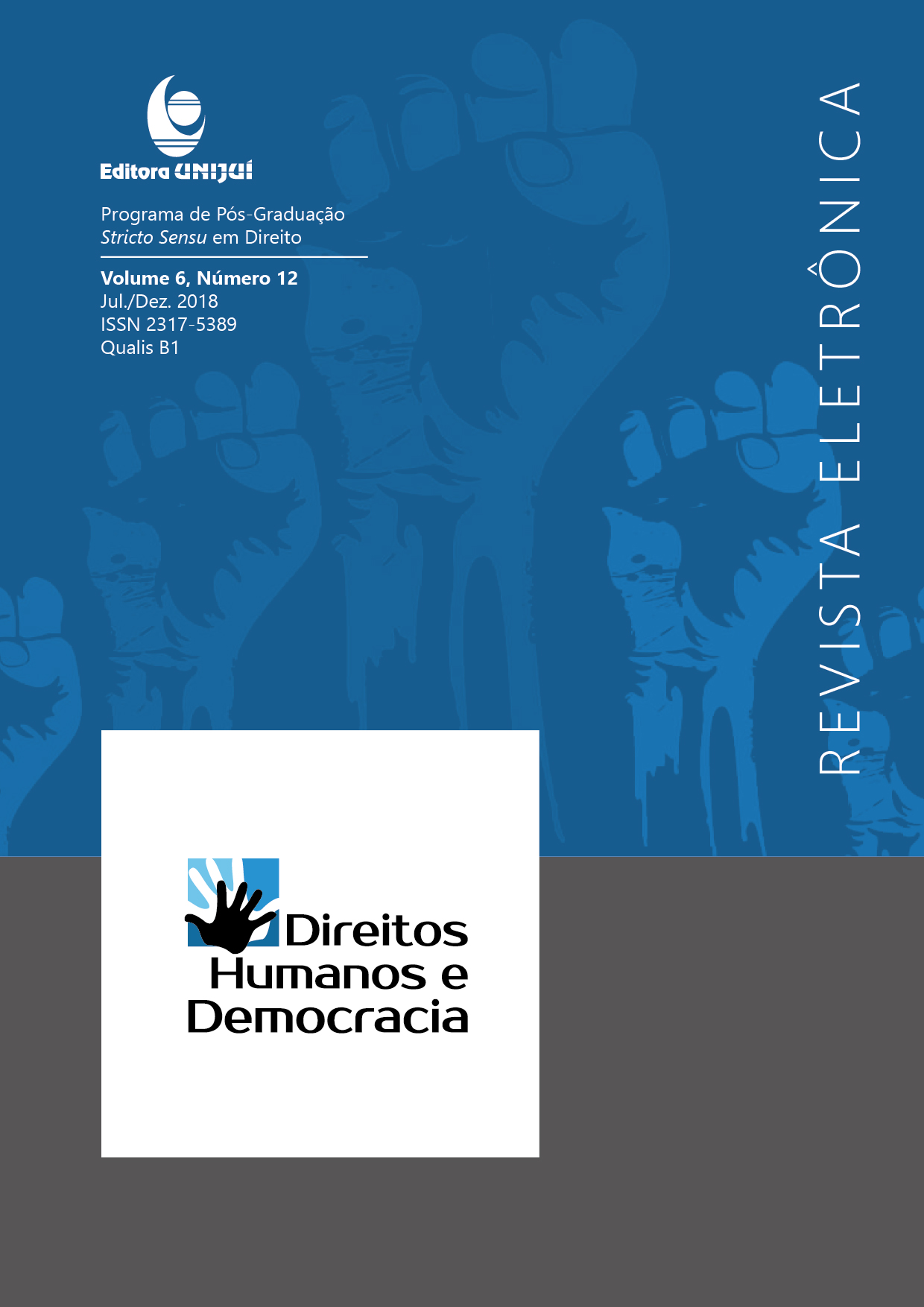ACESSO À JUSTIÇA, DEFENSORIA PÚBLICA E AÇÕES CIVIS PÚBLICAS: UMA ANÁLISE ACERCA DA LEGITIMIDADE ATIVA QUESTIONADA NOS AUTOS DA ADI 3943 DO SUPREMO TRIBUNAL FEDERAL
DOI:
https://doi.org/10.21527/2317-5389.2018.12.175-195Abstract
A Ação Civil pública é importante instrumento para efetivação dos direitos fundamentais. Lutas históricas foram travadas desde o medievo para a concretização do acesso à justiça, tornando-se preocupação central dos países ocidentais após a primeira metade do século XX, onde o Estado de Bem-estar social assume posição ativa em relação à garantia dos direitos fundamentais. No Brasil, o ordenamento jurídico dispõe da ação civil pública por meio da Lei n. 7347/85, que elenca um rol taxativo de legitimados para a proposição de ações de interesse coletivo. O presente trabalho objetiva examinar especificamente, dentre os legitimados, a controvérsia acerca da legitimidade ativa da Defensoria Pública para a propositura de tais ações, através de pesquisa bibliográfica e adotando, ainda, abordagem qualitativa, consubstanciada por pesquisa empírica, centrada na análise do julgamento da Ação Direta de Inconstitucionalidade nº 3943, norteada pelo método hipotético dedutivo. A controvérsia cinge-se a analisar a função precípua da Defensoria, em defesa dos beneficiários que sejam comprovadamente hipossuficientes econômicos. Os resultados da pesquisa apontam para uma interpretação constitucional extensiva, abrangendo de modo mais amplo o conceito de necessitado, desdobrando o termo em necessitados jurídicos ou organizacionais e os necessitados econômicos. Além disso, entende-se que, uma vez especificado o rol dos afetados pelo resultado da ação coletiva, constando nele pessoas necessitadas, se justifica então a legitimidade da Defensoria Pública à propositura das ações coletivas, sem estar condicionada à comprovação de hipossuficiência, sob pena de contradição aos princípios norteadores da própria instituição.
Downloads
Published
How to Cite
Issue
Section
License
By publishing in the Revista Direitos Humanos e Democracia, authors agree to the following terms:
Articles are licensed under the Creative Commons Atribuição 4.0 Internacional (CC BY 4.0), which allows:
Share — copy and redistribute the material in any medium or format;
Adapt — remix, transform, and build upon the material for any purpose, including commercial use.
These permissions are irrevocable, provided the following terms are respected:
Attribution — authors must be properly credited, with a link to the license and indication of any modifications made;
No additional restrictions — no legal or technological measures may be applied that restrict the use permitted by the license.
Notices:
The license does not apply to elements in the public domain or covered by legal exceptions.
The license does not grant all rights required for specific uses (e.g., image rights, privacy, or moral rights).
The journal is not responsible for opinions expressed in the articles, which remain the sole responsibility of the authors. The Editor, with the support of the Editorial Committee, reserves the right to suggest or request modifications when necessary.
Only original scientific articles presenting research results of interest, not previously published or simultaneously submitted to another journal with the same purpose, will be accepted.
References to trademarks or specific products are intended solely for identification purposes and do not imply any promotional endorsement by the authors or the journal.
License Agreement: Authors retain copyright over their articles and grant the Revista Direitos Humanos e Democracia the right of first publication.













